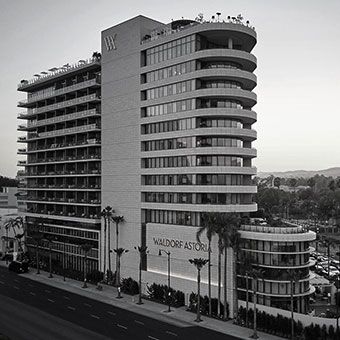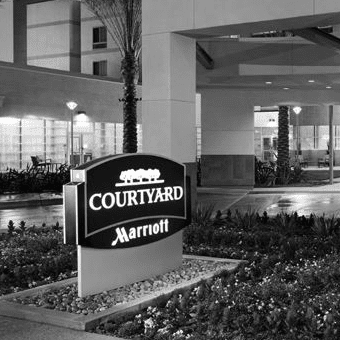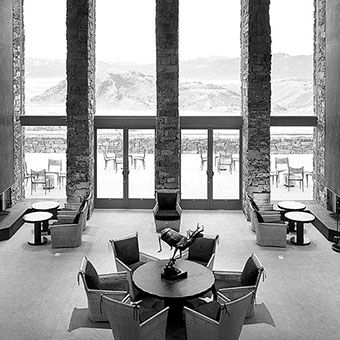There is no discounting the impact of inflation on our current economy. Inflation also has a direct impact on the world of hospitality, from operating expenses to labor costs to transaction activity, to name three.
Those of us in real estate investment are not expecting a softening of interest rates anytime soon. Despite some easing, everyday inflation remains strong in the United States and globally, labor pressures persist in wake of this persistent inflation and world events aren’t helping, either. Overall, we expect the current interest rate environment to continue into 2024.
As we know and have seen, higher interest rates are having a chilling effect on transactions as they impact mortgage terms and debt financing, causing pressure on valuations. As the cost of debt goes up, so do capitalization rates, which have risen 50-150 basis points since the summer of 2022.
On the plus side, hotels are a desired investment compared to several other categories of commercial real estate, including office, retail and, even, multifamily. Many owners are enjoying a favorable current financial structure and high operating yields, but there is a wave of debt coming due in the next two years in most all classes of commercial real estate.
Climbing the Wall of Capital
Despite these headwinds, we are finding liquidity and having success in closing deals, regardless of the current and prospective interest rate environments. Banks are not coming back to hotel lending as before, but there are many lender types, from insurance companies, CMBS lenders and debt funds, that are filling the void.
Not unexpectedly, what owners can expect varies with asset class, location, newness and condition of property, and current revenue generation. At one end of the spectrum are hotels with all the goods: excellent location in desirable growth markets; relatively new built or recent PIP completed; easy-to-understand operating model; and strong in-place cash flow in a market with abundant service talent. Even with more conservative capital right now, if you have what people want, you will have a range of options.
An additional factor that can affect appeal is if there is attractive financing already in place at a favorable rate, much lower than current rates, with some meaningful term left. Many of these loans are with the CMBS marketplace and can take time to re-structure, but if the new buyer has the persistence, these loans can sometimes be assumed by new ownership. Of course, many of these existing owners aren’t rushing to sell, which provides the luxury of patience.
On the other hand, there are properties facing end of financing that are disadvantaged due to the market they are in; where CapEx deferral dating all the way back to the pandemic hasn’t been remedied; or there is a less easy to understand hospitality operating model. In such cases, ownership must face the realities of the situation, which may mean taking a haircut from desired valuation or reinvesting into the asset to deleverage and right-size the loan balance, in exchange for more term from their lender to realize their business plan. In today’s financing environment, we believe some lenders may need to take back a property and complete a workout to find new ownership.
Fix and Hold
As described, with the right type of hotel product, there will be financing options as loans mature even with banks out of the marketplace, as insurance companies are stepping into the void. Examples include familiar names like MetLife, AIG, New York Life or MassMutual. The securitized marketplace is robust at present, presenting alternatives to bank lending.
We are advising owners to fix a lending rate that is relatively attractive to the market while simultaneously maximizing flexibility on term and other key deal points. By fixing rate on the debt side, while limiting the term, should interest rates begin to fall, there will be financing options. Additionally, the forward-looking SOFR curve does suggest base rates should fall in the next few years, lending merit to floating-rate proposals, but a bet on falling rates feels riskier every day.
Perhaps we were spoiled by an extended period of attractively low interest rates, which undoubtedly masked some poor investment decisions. Now, we are all learning to operate within these newer interest rate boundaries—not loving it, but working with it. As long as developers and owners create and operate attractive properties that appeal to the full spectrum of consumers, there will be robust investment interest in hospitality product.





